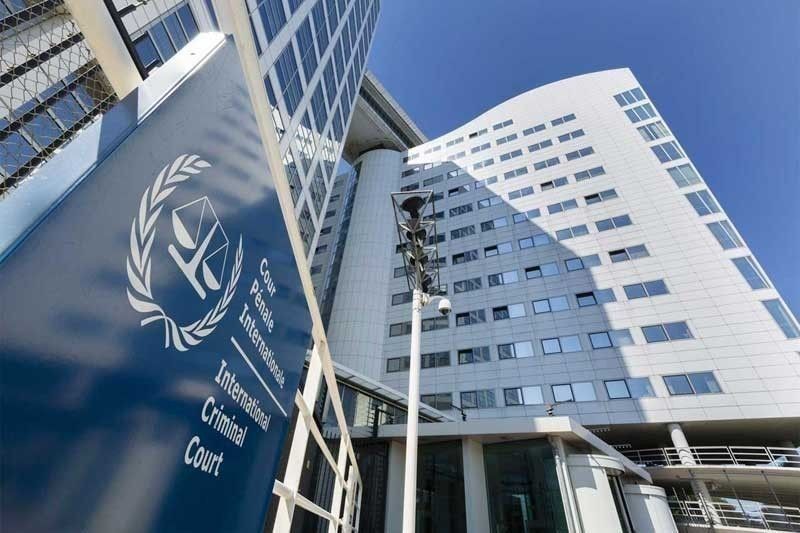Marcos admin 'disappointed' with ICC's decision, stresses minority position

MANILA, Philippines — The administration of President Ferdinand Marcos Jr. stood firm in its position, asserting that the International Criminal Court lacks the authority to proceed with its investigation into the alleged human rights abuses committed during former President Rodrigo Duterte's controversial "war on drugs".
The ICC on Tuesday announced that it rejected the government's appeal against the Pre-Trial Chamber's authorization to resume the investigation into the anti-narcotics campaign which reportedly took the lives of over 30,000, some without due process, according to rights groups.
"The Office of the Solicitor General is disappointed in today's judgment issued by the Appeals chamber of the ICC," said Assistant Solicitor General Myrna Agno-Canuto in a statement read to the media on Tuesday evening.
"By a split 3-to-2 decision, the Appeals Chamber... in effect refused to recognize the Philippine Government's primary and sovereign right to investigate serious crimes, in derogation of the complementarity principle so fundamental to the working of the international criminal justice system of which the ICC forms part."
The OSG also lamented how the Chamber's majority refused to consider Manila's jurisdictional challenge on the ground that the Impugned Decision of the Pre-Trial Chamber is not a decision on jurisdiction.
Families of victims of extrajudicial killings and various human rights groups earlier welcomed the ICC's decision, saying that this is an important step towards achieving justice.
Justice Secretary Jesus Crispin Remulla is set to issue his statement regarding the matter on Wednesday.
Minority Chamber
The OSG noted that the Chamber's minority, which included the presiding judge, said that the issue of jurisdiction was "properly raised" before the Appeals Chamber because the Pre-Trial Chamber's finding on jurisdiction is an integral part of the Impugned Decision.
"The established principle of international law dictates that the Court must satisfy itself of its own jurisdiction and this power to determine its own jurisdiction exists regardless of whether the Court is called upon to exercise this power or not."
The minority also pointed out that the Rome Statute is a treaty and "that it is a fundamental right of States to decide where they want to be bound by a treaty or not."
Agno-Canuto defended the Philippines' decision to withdraw from the Court before its authorization was requested and secured, asserting that it was "a valid exercise" of state prerogative.
According to the OSG, this withdrawal effectively divests the Court of jurisdiction over the country's legal matters.
"The majority decision does not alter the fact that the Republic, through its various national and local agencies, remains fully committed to the internal investigation and prosecution of allegations connected to the anti-illegal drug campaign," the OSG said.
"The Philippine Government will not be deterred by today's outome."
Did VP Sara Duterte know, approve of killings?
During the press conference, foreign counsel Sarah Bafadhel declined to provide a definitive answer to the media regarding Vice President Sara Duterte-Carpio's alleged knowledge and approval of the killings that occurred during her tenure as Davao City mayor.
The press conference included the contents of documents submitted to the ICC as part of the ongoing investigation into human rights abuses connected with President Rodrigo Duterte's controversial drug war campaign.
In the documents, allegations reportedly mentioned both Vice President Sara Duterte-Carpio and Sens. Christopher "Bong" Go and Ronald "Bato" dela Rosa.
"No. We cannot confirm the names that were named in the documents submitted. This is a confidential process thus far," Bafadhel said.
"There is not official record of who's been named."
Duterte-Carpio, daughter of the former president, has chosen to remain tight-lipped following the ICC's decision on the ongoing investigation into the country's drug war. She simply delivered a brief statement, stating, "No comment.
Jurisdiction woes
The ICC announced the suspension of its probe into the country's drug war in November 2019, during the tenure of the Duterte administration. The suspension came after the Philippine government assured the ICC that it would initiate its own comprehensive inquiry into the deaths associated with the controversial campaign.
The pre-trial chamber of the ICC reinstated its probe, citing inadequate domestic investigations.
The decision prompted Philippine authorities to challenge the ICC's jurisdiction in March 2023. They insisted that the court had no authority over the country due to the Philippines' withdrawal from the Rome Statute on March 17, 2019.
However, the ICC rejected this appeal, asserting that Article 127 of the Rome Statute makes it clear that "a State shall not be discharged, by reason of its withdrawal, from the obligations arising from this Statute while it was a Party to the Statute."
- Latest
- Trending































